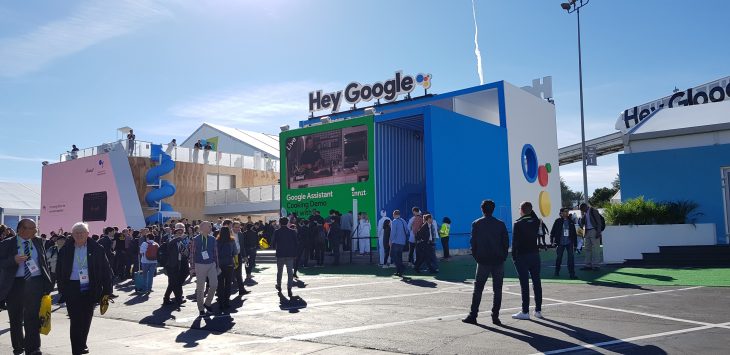
LAS VEGAS – At first glance this year’s Consumer Electronics Show appears not much different than those of the past. There are still thousands of exhibiting companies across 2.6 million square feet of exhibit space, all vying to sell you the latest must-have gadget.
When you looked closer, however, the messaging was different. It was less about the latest gadget and more about improving the customer experience – and that’s because artificial intelligence is finally more than a marketing strategy (well, it still is for some) but something that has matured to the point where consumers can see and will pay for the connected experiences it can create.
This year companies such as Sony, LG and Samsung devoted far more time in their press day launches to speaking about the connectedness of their products can lead to better experiences than merely trying to sell you a bigger TV.
Their presentations seemed to blend into each with videos of a not-too-distant future where all your devices live in perfect harmony. In one example you come home from work in your self-driving car and the garage door senses the car’s presence, opens up, and the car drives itself in. You don’t have to worry about finding your keys as you head right inside by scanning the smartphone enabled smart lock on the front door as you pass.
On your way home you started watching your favourite TV show on your tablet but only got half way through. No worries as the device tells your TV to turn on so it’s ready to watch as soon as you open the door.
In the car you used your smartphone app to send a message to your smart oven to start warming itself up for dinner. Your smart fridge keeps track of all the items stocked and gives you a number of recipes based on the ingredients you have. Your fridge’s display can even play a video to walk you through the recipe step-by- step. I could go on but you get the point.
AI has been a buzz word at CES for years. Most of the talk was merely marketing strategy. But Amazon’s Alexa and Google’s Assistant have changed that. Now it seems every manufacturer is trying to cram Alexa or Assistant into their gadgets.
“To remain relevant, technology vendors must integrate AI into every aspect of their devices, or face marginalization.” – Robert Cozza, Gartner Research
The growing expectation from consumers says Steve Koenig, senior director of market research at the Consumer Technology Association is that they can speak to and get a response back from their devices. Merely being connected to the Internet is just not enough anymore.
At this year’s show you could sense the race between Amazon and Google to become the industry leaders in the AI market. It seemed every booth you visited declared that their product worked with Google Assistant or Amazon’s Alexa. Google had its “Hey, Google” advertising tagline plastered everywhere including the Vegas monorail and it’s outdoor Assistant Playground on the grounds of CES was the first thing you saw as you pulled into the show.
The market for AI only promises to grow larger with Gartner Research predicting that by 2020, 60% of personal technology device vendors will use third-party AI cloud services to enhance functionality and services. Technology research firm Canalys expects 56.3 million smart speakers to ship worldwide in 2018, up from about 34 million in 2017.
In the near future, the second wave of AI will enable more smart devices to capture human emotions and moods in relation to certain data and facts, and to analyze situations accordingly. The day may be coming for example where your smart fridge can tell how you feel and suggest foods that match your emotion.
“Emotion AI systems and affective computing are allowing everyday objects to detect, analyze, process and respond to people's emotional states and moods to provide better context and a more personalized experience,” Roberta Cozza, research director at Gartner, says in a statement. “To remain relevant, technology vendors must integrate AI into every aspect of their devices, or face marginalization.”
Emotion (AI) systems are becoming so sophisticated that Gartner, Inc. predicts that by 2022, personal devices will know more about an individual's emotional state than his or her own family. So be good to your fridge, it could potentially take the place of your local bartender.



